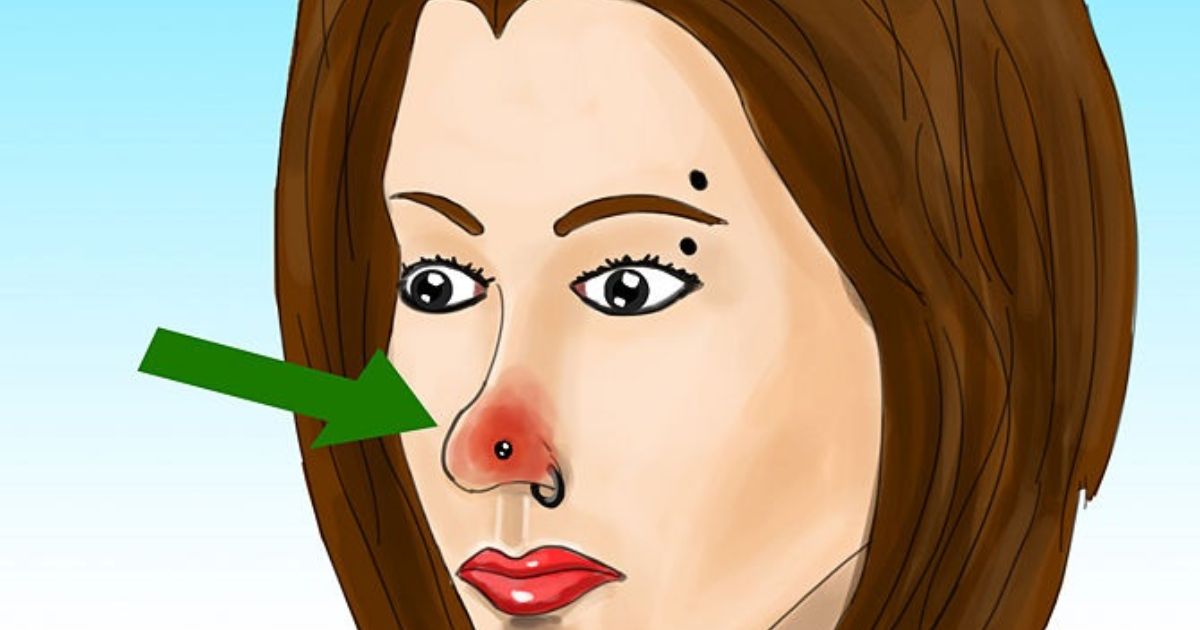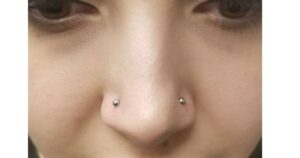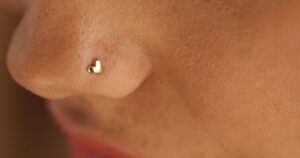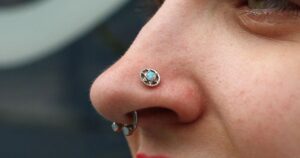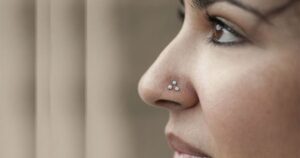Nose piercing is a body modification where a small hole is made in the nose. It allows for decorative jewelry like rings or studs to be worn. This practice is common in many cultures and can be done for aesthetic or personal reasons. Healing time varies but generally takes a few months.
Thinking about getting a nose piercing? While it can be a stylish and personal choice, it’s important to consider all aspects, including potential risks. You might be wondering, Can a nose piercing cause a sinus infection? Discover the facts and make an informed decision to ensure your new look stays safe and healthy.
A nose piercing can sometimes lead to infections, including sinus infections, if not properly cared for. The risk is higher if the piercing becomes infected or if bacteria enter through the piercing site. Keeping the area clean and following aftercare instructions can help reduce this risk.
Potential Risks of Nose Piercings
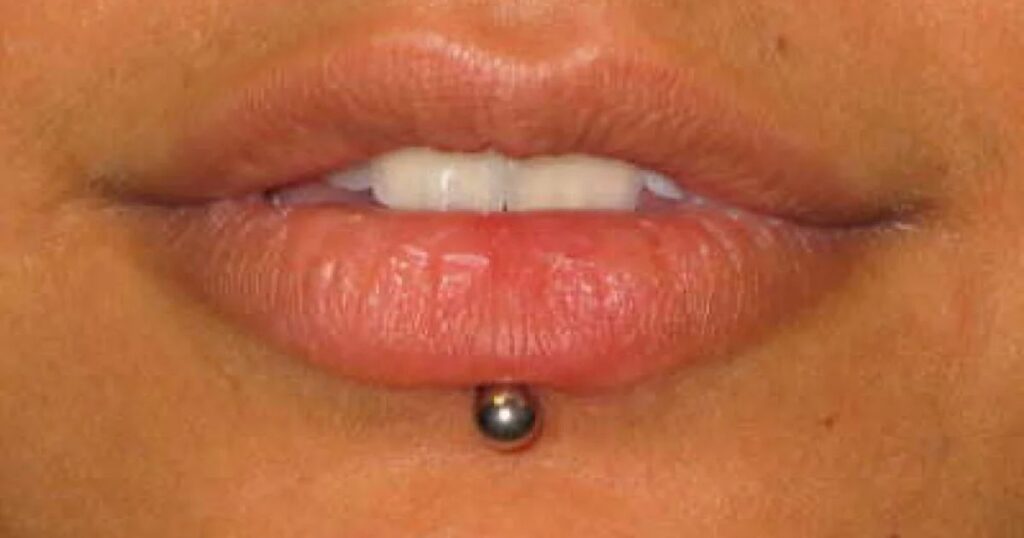
Nose piercings come with potential risks, including the chance of infection. Bacteria can enter through the piercing site, leading to redness, swelling, and pain. Improper aftercare or touching the piercing with dirty hands can increase the risk.
Another concern is that a nose piercing might cause sinus issues if bacteria spread to the sinus cavities. It’s important to follow cleaning instructions carefully and avoid any activities that could introduce germs. Keeping an eye on any changes can help prevent complications.
Infection Risks
Infection risks associated with nose piercings are primarily due to the introduction of bacteria into the piercing site, which can occur if the equipment used is not properly sterilized, if the piercing is not kept clean during the healing process, or if it is frequently touched with unwashed hands. These infections can cause redness, swelling, pain, and discharge, and in more severe cases, can spread and lead to complications such as a sinus infection. To minimize these risks, it is crucial to follow proper aftercare guidelines, use a reputable piercing studio, and avoid touching the piercing unnecessarily.
How Piercings Can Affect Sinuses
Piercings, particularly those in the nose, can affect the sinuses by creating a pathway for bacteria to enter, potentially leading to infections. When a nose piercing isn’t properly cared for, it can become infected, causing swelling and inflammation that can obstruct the sinus passages. This obstruction can lead to sinus infections, characterized by symptoms like congestion, pain, and pressure around the nose and forehead. Therefore, it’s crucial to follow proper aftercare instructions and maintain good hygiene to minimize the risk of complications affecting the sinuses.
can a nose piercing infection kill you
While it is extremely rare, a severe nose piercing infection has the potential to be life-threatening if not properly treated. Infections can spread from the piercing site to other parts of the body, including the bloodstream, leading to serious conditions like sepsis, which requires immediate medical attention. Symptoms of a severe infection may include high fever, chills, increased redness and swelling, and pus discharge from the piercing site.
Preventing a nose piercing infection involves diligent aftercare, including cleaning the piercing regularly with a saline solution and avoiding unnecessary touching or trauma to the area. If you notice any signs of infection, such as persistent pain, excessive swelling, or unusual discharge, it’s important to consult a healthcare professional promptly. Early intervention can prevent complications and ensure a safe and successful healing process.
can nose piercing infection spread to brain
While it is rare, a nose piercing infection can potentially spread to the brain if not properly treated. The nose and sinuses are located close to the brain, and severe infections can sometimes travel through blood vessels or tissues, leading to serious complications such as meningitis or brain abscesses. If you’re wondering, “Does a nose piercing suit me?”, it’s also important to consider the potential health risks associated with the piercing. These conditions can be life-threatening and require immediate medical attention.
To minimize the risk of such severe complications, it is crucial to follow proper aftercare instructions, keep the piercing clean, and monitor for any signs of infection. If you experience symptoms such as severe headache, fever, or unusual drainage from the piercing site, seek medical help promptly. By taking these precautions, you can enjoy your nose piercing safely and reduce the chances of complications.
nose piercing side effects
Nose piercings, while popular and often seen as a form of self-expression, can come with several side effects. One common issue is infection, which can occur if the piercing is not properly cared for or if bacteria enter the wound. Signs of infection include redness, swelling, pain, and discharge. Allergic reactions to the jewelry material, especially nickel, can also cause irritation and discomfort. Additionally, improper piercing techniques or jewelry can lead to scarring or keloids, which are raised areas of scar tissue.
Another potential side effect of nose piercings is the risk of injury or trauma to the piercing site. Accidental bumps or snagging on clothing can cause the piercing to tear, leading to pain and possible bleeding. Some people may also experience prolonged healing times, which can increase the risk of complications. In rare cases, a nose piercing can cause more serious issues, such as a sinus infection if the piercing becomes severely infected. It’s important to follow proper aftercare instructions and consult a professional piercer to minimize these risks and ensure a safe and successful piercing experience.
how to heal a nose piercing fast
| Tip | Description |
| Keep It Clean | Clean the piercing twice daily with saline solution or a piercing aftercare spray. Avoid using harsh chemicals like alcohol or hydrogen peroxide. |
| Avoid Touching | Only touch your piercing with clean hands to prevent introducing bacteria. Avoid twisting or playing with the jewelry. |
| Use the Right Jewelry | Choose high-quality jewelry made from hypoallergenic materials like surgical steel, titanium, or gold to reduce the risk of irritation and infection. |
| Avoid Makeup | Keep makeup, lotions, and other products away from the piercing to prevent irritation and infection. |
| Stay Away from Water | Avoid swimming in pools, hot tubs, and natural bodies of water, as these can introduce bacteria to the piercing. |
| Be Gentle | Be cautious when washing your face, sleeping, and changing clothes to avoid bumping or snagging the piercing. |
| Healthy Lifestyle | Maintain a healthy diet, stay hydrated, and get plenty of rest to support your immune system and promote faster healing. |
| Consult a Professional | If you notice signs of infection or unusual symptoms, seek advice from a professional piercer or healthcare provider promptly. |
These tips can help speed up the healing process and reduce the risk of complications.
nose piercing healing stages pictures
Getting a nose piercing is an exciting process, but understanding the healing stages is crucial for proper care. Typically, the healing process is divided into several stages: initial healing, where the piercing is fresh and tender; mid-healing, where the piercing may be less sore but still requires careful cleaning; and final healing, where the piercing is fully healed but still needs occasional maintenance to prevent issues. During the initial healing stage, pictures often show redness and swelling, which is normal as your body adjusts to the new piercing.
Throughout each healing stage, it’s important to follow aftercare instructions diligently, such as cleaning the piercing with saline solution and avoiding unnecessary touching or twisting of the jewelry. Pictures can be a helpful way to track your progress and identify any potential issues early on. If you notice unusual symptoms, such as excessive redness, discharge, or pain, comparing your piercing to pictures of typical healing stages can help determine if you need to seek professional advice.
FAQ,S
Does nose piercing cause sinus problems?
Nose piercings can potentially cause sinus problems if an infection occurs, but with proper care, this risk is minimal.
Can an infected nose piercing make you sick?
Yes, an infected nose piercing can make you sick by causing symptoms like fever, swelling, and pain, indicating that the infection might be spreading.
What are the complications of nose piercing?
Complications of nose piercing can include infections, allergic reactions, scarring, and keloids.
Who shouldn’t get a nose piercing?
People with certain medical conditions, allergies to metals, or compromised immune systems should avoid getting a nose piercing.
What piercing helps sinuses?
There is no specific piercing that helps sinuses. Piercings are not known to treat or improve sinus issues.
Conclusion
In conclusion, while nose piercings are a popular form of self-expression, it’s important to be aware of potential risks such as infections or sinus issues. Proper aftercare and hygiene are crucial to minimize these risks and ensure a smooth healing process.
Always stay informed about the healing stages and any signs of complications. If you have concerns or notice unusual symptoms, seeking professional advice can help you address any issues promptly and maintain your piercing’s health and appearance.
